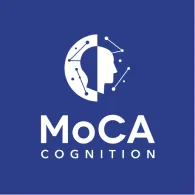Mild Cognitive Impairment (MCI) is a condition characterized by cognitive changes that are noticeable to the affected individual and possibly to those around them, but these changes do not interfere significantly with daily life or independence. MCI is often considered an intermediate stage between age-related cognitive decline and more severe cognitive impairments, such as dementia.
Key features of MCI include:
-
Memory impairment
MCI often involves mild to moderate memory problems, particularly regarding recent events and information. These memory difficulties may be more pronounced than what would be expected for age but are not severe enough to interfere with daily functioning.
-
Cognitive function
While memory problems are common in MCI, individuals with this condition typically exhibit relatively intact cognitive abilities in other areas, such as language, problem-solving, and reasoning.
-
Awareness of cognitive changes
People with MCI are generally aware of their cognitive changes and may express concern or frustration about their memory problems.
-
Minimal impact on daily life
Unlike dementia, MCI does not significantly impair an individual’s ability to perform routine activities of daily living, such as dressing, grooming, and managing finances.
It’s important to note that MCI is not a specific diagnosis but rather a clinical term used to describe a level of cognitive impairment that falls between age-related cognitive changes and more severe forms of cognitive decline, such as Alzheimer’s disease or other types of dementia.
There are different subtypes of MCI, including amnestic MCI (where memory problems are the primary symptom) and non-amnestic MCI (where other cognitive domains are affected, such as language or executive function).
While MCI is often considered a transitional stage, not everyone with MCI will progress to dementia. Some individuals remain stable in their cognitive abilities, while others may experience improvement. However, a significant proportion of people with MCI do progress to more severe cognitive impairments over time.
It’s crucial to seek medical evaluation and guidance if you or a loved one is experiencing cognitive changes consistent with MCI. A healthcare professional can help determine the underlying cause of the cognitive impairment, provide a diagnosis, and offer recommendations for management and potential interventions. Early diagnosis and intervention may help in managing and addressing MCI effectively.
